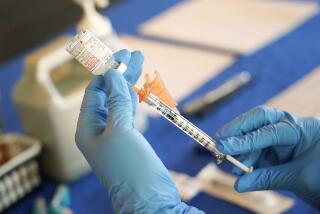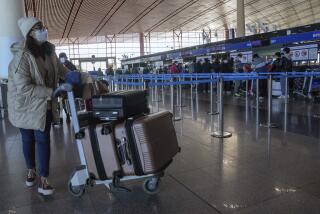Free food and tickets: How China’s trying to boost lagging vaccination rates
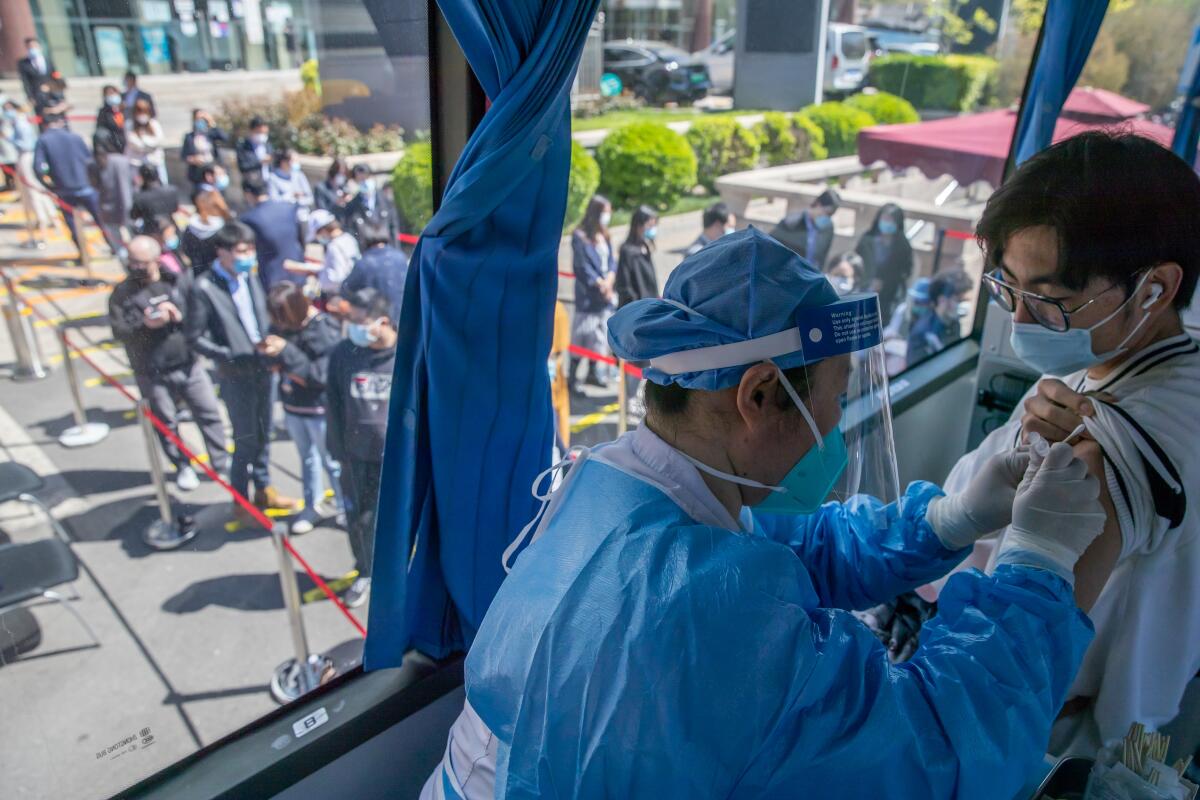
BEIJING ‚ÄĒ The poster was not the slickest marketing campaign, but it made its point: ‚ÄúCome get your eggs!!!‚ÄĚ
Every person above age 60 who got a COVID-19 vaccine at this community center in Beijing would be entitled to two boxes of free eggs. The deal was part of a nationwide push to raise vaccination rates in a country where successful containment of the pandemic has spurred complacency despite ample supplies of vaccine.
Chinese authorities have set a target of vaccinating 40% of its population of 1.4 billion by June. As of Wednesday, nearly 180 million doses had been administered, according to health authorities, though the number of fully vaccinated people that represents is unknown.
To reach their goal, authorities have dispatched community-level workers across the land to knock on doors, broadcast calls on village loudspeakers and offer perks for the vaccinated.
Free eggs and park tickets have been a common offering in Beijing. In one district of Shenzhen, companies donated 2,500 coupons for roast pigeon and free soy milk to lure people to roll up their sleeves. In another, patriotic films were shown to ‚Äúwarm the hearts‚ÄĚ of those who got vaccinated.
One reason for China’s initially slower vaccine rollout is its success in stopping the virus’ spread. China has had only a handful of small outbreaks this year, all quickly contained through severe lockdowns and quarantines. Most of the country has been living normally for months, with group gatherings, open schools and workplaces and little sense of urgency surrounding vaccination.
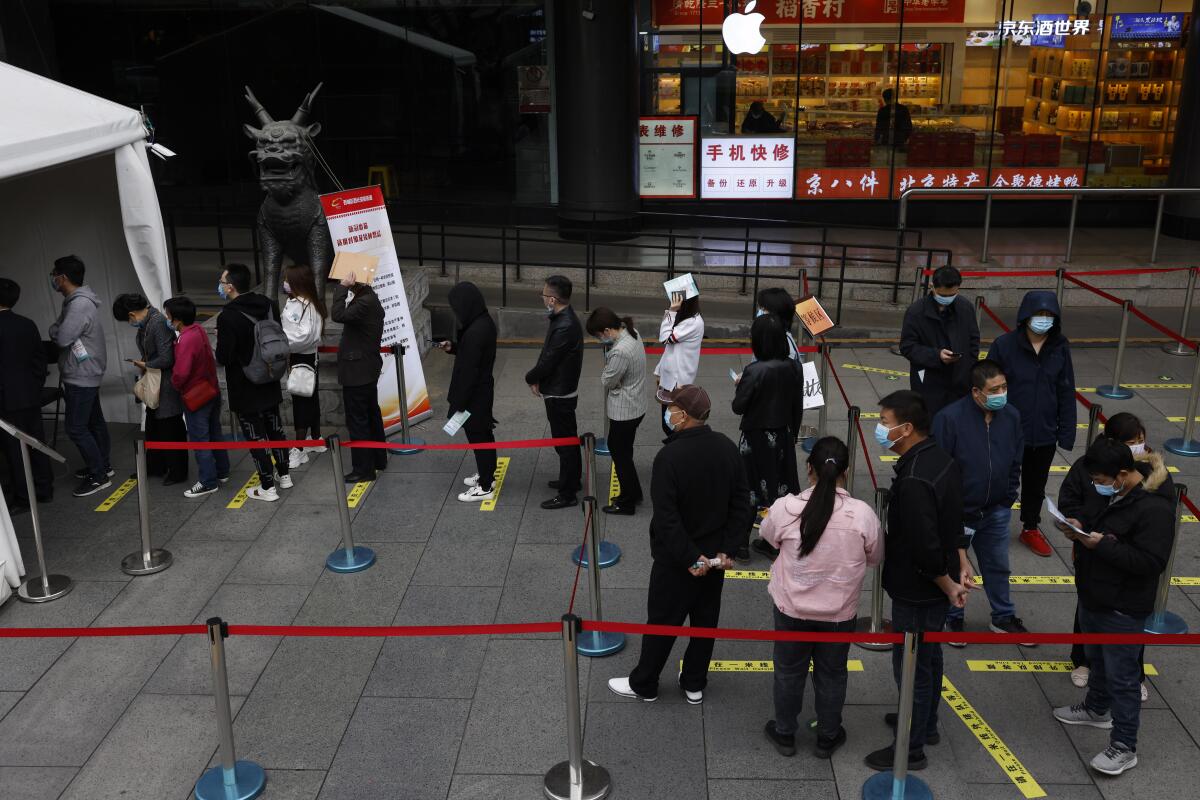
At the same time, a degree of skepticism has arisen around the efficacy of China’s vaccines, which, as part of Beijing’s vaccine diplomacy, have been sent to dozens of countries even though the manufacturers released no public data about their final trials.
Experts on a World Health Organization advisory panel recently said they had seen data from Chinese companies Sinopharm and Sinovac that their vaccines met WHO requirements of 50% efficacy and full safety. The data have not been publicly released, but Sinopharm has claimed that its vaccine has 79% efficacy, while Brazil, Turkey and Indonesia have said Sinovac trials in their countries showed a range of 50% to 83% efficacy.
On April 10, Gao Fu, the head of the Chinese Center for Disease Control and Prevention, startled some in the government when he said at a medical conference that the efficacy of China‚Äôs vaccines was ‚Äúnot high‚ÄĚ and that it could be improved by adjusting the number of doses, changing the amount of time between doses or mixing different types of vaccines.
He also stated that mRNA vaccines ‚ÄĒ the type made in the U.S. by Pfizer-BioNTech and Moderna ‚ÄĒ have achieved remarkable levels of immunity and that China should not overlook such technology. It was a scientific observation that immediately turned political. Gao was factually correct: China‚Äôs vaccines have a lower efficacy than those produced by Pfizer-BioNTech and Moderna.
But to say so in China’s hyper-nationalistic environment, where vaccines have become a symbol of the country’s scientific prowess and global influence, was controversial. Chinese officials and state media have in recent months questioned the safety of foreign vaccines while promoting China’s offerings, despite the lack of transparency around their trial data.
Gao was soon quoted again in state-affiliated media, saying foreign reporting on his admission that Chinese vaccines provide less protection was a ‚Äúcomplete misunderstanding.‚ÄĚ
At the community vaccine site in Beixinqiao, a district of central Beijing, no one seemed to have heard of Gao’s statements or been discouraged from getting vaccinated.
‚ÄúI believe our country will ensure safety for its people,‚ÄĚ said Cui, 28, a woman who‚Äôd just received her second shot and did not give her full name.
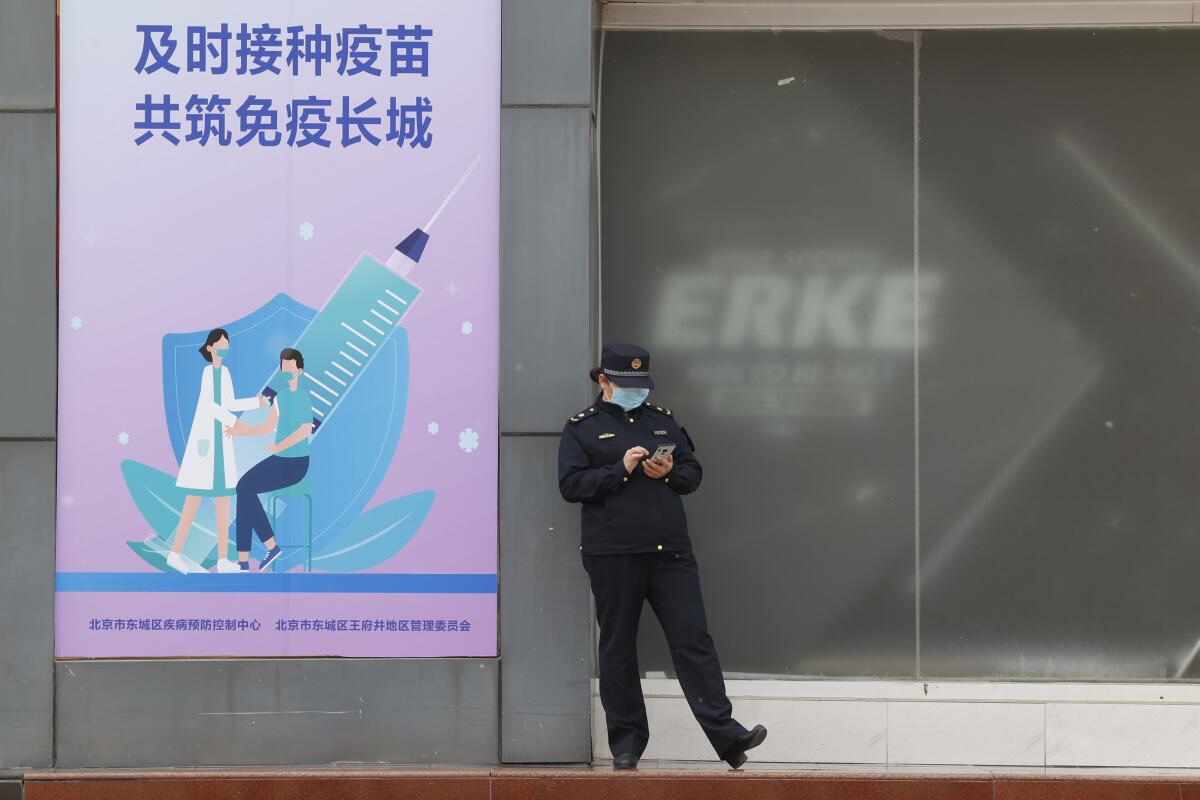
A volunteer named Qi Chao, 40, stood in the building stairwell, holding up QR codes for visitors to scan and register for their shots. They came in a steady stream: a young woman helping her bespectacled father sign up on his cellphone, a street sweeper still in her uniform, a woman with a plastic bag of vegetables who stood outside shouting questions at her friend upstairs before entering.
Some visitors had questions about their eligibility ‚ÄĒ a mother who was breastfeeding, an elderly woman with an arm injury, a man with high blood pressure ‚ÄĒ but they were few. Qi, the volunteer, said almost no one asked which vaccine they were getting or inquired about efficacy.
‚ÄúThere‚Äôs no difference between the vaccines anyway,‚ÄĚ Qi said. ‚ÄúI don‚Äôt know how long it lasts, how well it works, but of course it‚Äôs useful to get it and better to have it than not.‚ÄĚ
Scientists agree.
‚ÄúHaving some protection is much better than having no protection,‚ÄĚ said Keiji Fukuda, director of the University of Hong Kong‚Äôs School of Public Health. As COVID-19 continues to spread and mutate, it is likely that individuals will need additional shots regardless of which vaccine they‚Äôre getting now, he said: ‚ÄúIt‚Äôs better to get vaccinated early with whatever approved vaccine is available.‚ÄĚ
Gao‚Äôs suggestion about mixing vaccines ‚ÄĒ using different types that stimulate immune responses in different ways ‚ÄĒ is under serious consideration in several countries. Researchers at Oxford University are testing whether combinations of the Pfizer and AstraZeneca vaccines produce better immunity than either vaccine alone. Trials of an AstraZeneca combination with Russia‚Äôs Sputnik V vaccine are also underway.
Scientists from China’s National Institutes for Food and Drug Control have experimented with combinations of vaccines on mice and found that some produced a stronger immune response.
Gao, the CDC head, and researchers from the National Institutes for Food and Drug Control did not respond to requests for further comment from The Times. Official guidelines in China recommend using the same vaccine product for both shots. But there is a possibility that ‚Äúmixing vaccines‚ÄĚ could open the way for use of foreign vaccines in China.
Chinese firm Fosun Pharma has had a deal in place with BioNTech since last December to distribute 100 million doses of the mRNA vaccine it developed in conjunction with Pfizer. But mainland authorities have not approved the vaccine, despite its approval by the WHO and by Hong Kong and Macao’s separate regulators.
Clinical trials of the vaccine are underway, but it is unclear whether China will approve it first or prioritize a fully Chinese-made mRNA vaccine.
The Wall Street Journal on Friday reported that Chinese officials plan to approve the BioNTech vaccine within the next 10 weeks, citing unnamed sources. But that depends in part on approvals of the Chinese vaccine abroad, the Journal reported.
Vaccine choice is more complicated than simple comparison of efficacy numbers, said Sheng Ding, director of the Global Health Drug Discovery Institute, a joint venture between Tsinghua University and the Gates Foundation.
Even China’s lower-efficacy vaccines have proved valuable at preventing serious illness in those who are infected, he said. That matters more for individual protection, while higher-efficacy mRNA vaccines might work better for building herd immunity. The cost of production, transportation and storage of different kinds of vaccines also affects policymakers’ decisions on which to use.
Political considerations about saving face shouldn’t come into play in a medical context, Ding said. Foreign drugs are widely used in China without politically sensitive implications, he pointed out. Why should vaccines be any different?
‚ÄúAt the end of the day, it‚Äôs about serving the people‚Äôs needs,‚ÄĚ Ding said. After all, those are a political consideration, too.
Special correspondent Ziyu Yang of The Times’ Beijing bureau contributed to this report.
More to Read
Sign up for Essential California
The most important California stories and recommendations in your inbox every morning.
You may occasionally receive promotional content from the Los Angeles Times.
